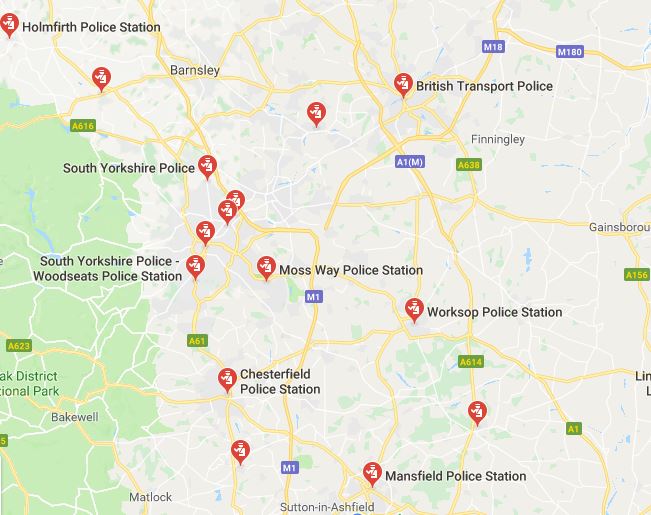All posts by Andrew Wesley/h3>
Confiscation law specialist Julia Haywood recently took over a client’s case post conviction. Our client was involved in confiscation proceedings involving a benefit figure of over a million pounds. He was not happy with the advice and representation he was receiving once the main part of the case was over.
It is often our experience that client’s may feel that their interests are not being properly protected after sentence, despite the fact that it may be that the outcome of any confiscation proceedings could be a more substantial punishment than the sentence for the offence.
In this case, our client had been referred on to this firm on recommendation from an existing client, the client citing out ‘Good reputation on Class A cases’ as one of the reasons why he wished to transfer to this firm.
The preparation of such cases are often complicated where our client is serving a sentence of imprisonment. For example, here. he was initially at HMP Wandsworth but later transferred to HMP Highpoint North.
The application to transfer legal aid to us was not resisted, and the first task Julia undertook was to seek to amend the timetable to permit proper preparation of our client’s case.
Background to the confiscation proceedings
The background to the case was a conviction for conspiracy to supply drugs of both Class A and Class B. There had been covert surveillance at agricultural premises, and following a raid cocaine was found that was initially valued at £1.5 million. The cocaine had a total weight of 22 kg, packaged in individual blocks. Our client was one of four co-accused. At the point that we took over conduct of the case, one of the co-accused had been subject to a confiscation order with a benefit figure specified of £1 060 280.
Unfortunately, our client was very unclear as to what he had pleaded guilty to and on what basis. It appears that he had followed advice that inevitably resulted in a significant loss of credit for his plea. He received advice in writing that he had pleaded guilty to possession with intent to supply a smaller amount of Class A drug when he had in fact pleaded to the conspiracy on a full facts basis. His case had been listed for a Newton Hearing, although this was later abandoned for reasons that were not immediately apparent. Our client was serving a sentence of 11 years.
In order to ensure that the case was fully prepared Julia visited her client six times prior to the final confiscation hearing. Although some work had been undertaken on his behalf, in effect she had to start the preparation of his case from the very beginning. Assertions had been made in documents submitted on our client’s behalf that had no legal basis.
Significant reduction of the benefit figure
The prosecution were claiming that our client’s benefit from his offending was £1.1m. Once Julia had taken the opportunity to review all of the evidence in the case she was able to engage in negotiation. Agreement was reached over a much reduced figure of £396K.
This reduction of £700K was likely to be extremely significant for our client over the longer term. He did not have assets sufficient to pay the benefit figure in full. As a result it would be open to the prosecution to bring the matter back to court each time it was discovered he had assets to direct that more money be directed to paying off the benefit figure. As a result it was in his interests for the benefit figure to be as small as possible.
Extensive realisable assets
The position in relation to our clients realisable assets was also complex. He had been self-employed. Preparation of such a case where a person is in prison is always difficult. This was particularly true as our client had been remanded from the time of charge.
He had significant assets that would be counted in the calculation of the ‘available amount’. He owned his own home and three vehicles as well as a large amount of specialist camera equipment. His partner, however, had left him following his arrest and taken all of his assets not seized by the police.
The prosecution was contending that these were tainted gifts although our client would argue otherwise. Julia was able to locate the ex-partner who attended court at the final hearing to confess what she had done!
There were further complicating issues involving substantial loans of many thousands of pounds to our client by his father. Julia was able to put together a comprehensive history of where her client’s money had come from. Understandably this was not an easy task.
The value of the Realisable assets as an ‘available amount’ was finally agreed at £136K. Julia identified a large sum of cash that had been seized by the police. This had not been counted in the initial prosecution calculation.
Although in this case, our client lost what he had, there was a reasonable opportunity to rebuild his fortunes upon his release from prison.
Instruct an expert on confiscation proceedings
The outcome of any case is important. In cases involving confiscation proceedings there will not only be a sentence to serve, but the potential for the additional punishment of loss of assets.
If you wish to discuss any aspect of your case then please contact Nottingham confiscation solicitor Julia Haywood on 0115 9599550. Alternatively, use the contact form below.




